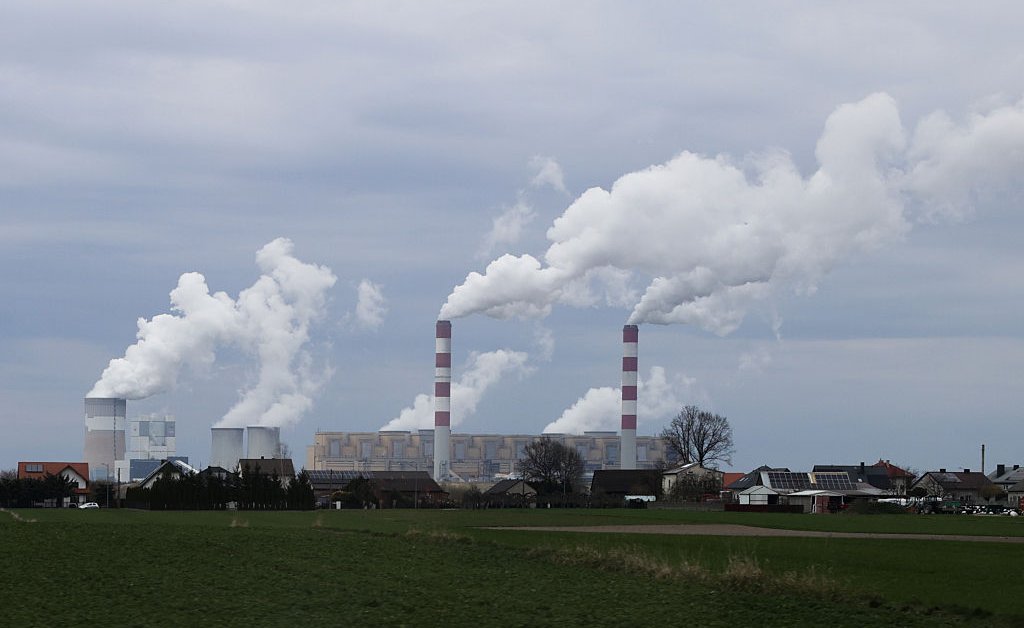Cleaner Air, Fewer Deaths: The Impact Of Emission Reduction On Public Health

Welcome to your ultimate source for breaking news, trending updates, and in-depth stories from around the world. Whether it's politics, technology, entertainment, sports, or lifestyle, we bring you real-time updates that keep you informed and ahead of the curve.
Our team works tirelessly to ensure you never miss a moment. From the latest developments in global events to the most talked-about topics on social media, our news platform is designed to deliver accurate and timely information, all in one place.
Stay in the know and join thousands of readers who trust us for reliable, up-to-date content. Explore our expertly curated articles and dive deeper into the stories that matter to you. Visit Best Website now and be part of the conversation. Don't miss out on the headlines that shape our world!
Table of Contents
Cleaner Air, Fewer Deaths: The Impact of Emission Reduction on Public Health
Air pollution is a silent killer, responsible for millions of premature deaths globally each year. But a growing body of evidence shows that reducing emissions – particularly from vehicles and industrial sources – significantly improves public health, leading to a measurable decrease in mortality rates. This isn't just about cleaner skies; it's about saving lives.
The Deadly Toll of Air Pollution
The World Health Organization (WHO) estimates that 7 million people die prematurely each year from exposure to fine particulate matter (PM2.5) and other air pollutants. These tiny particles penetrate deep into the lungs and bloodstream, causing or exacerbating a range of health problems, including:
- Respiratory illnesses: Asthma, bronchitis, and chronic obstructive pulmonary disease (COPD) are significantly worsened by air pollution.
- Cardiovascular diseases: Exposure to air pollution increases the risk of heart attacks, strokes, and other cardiovascular events.
- Lung cancer: Long-term exposure to air pollutants is a known carcinogen.
- Other health issues: Studies have linked air pollution to increased risks of dementia, diabetes, and even low birth weight.
The Positive Impact of Emission Reduction
Fortunately, the picture isn't entirely bleak. Numerous studies demonstrate a clear correlation between emission reduction initiatives and improved public health outcomes. These initiatives include:
- Stricter vehicle emission standards: The implementation of stricter regulations on vehicle emissions, such as those found in many European countries and increasingly in the United States, has led to measurable improvements in air quality and a subsequent decrease in respiratory illnesses.
- Investment in renewable energy: Transitioning from fossil fuels to renewable energy sources like solar and wind power significantly reduces air pollution from power generation. (This is a placeholder link; replace with a relevant resource).
- Industrial emission controls: Implementing stricter regulations and investing in cleaner technologies for industrial processes drastically reduces harmful pollutants released into the atmosphere.
- Urban planning and green spaces: Creating more green spaces within cities can help absorb pollutants and improve air quality, leading to demonstrable health benefits.
Real-World Examples of Success
Several cities and countries have seen dramatic improvements in air quality and public health following successful emission reduction programs. For example, London's implementation of the Ultra Low Emission Zone (ULEZ) has shown a noticeable reduction in air pollution levels and a corresponding decrease in respiratory hospital admissions. Similarly, many Chinese cities have witnessed significant improvements in air quality following stricter environmental regulations.
The Economic Benefits of Clean Air
The benefits of cleaner air extend beyond improved public health. Reduced healthcare costs, increased worker productivity, and improved tourism are just some of the economic advantages associated with reducing emissions. Investing in clean air is not just an environmental imperative; it's a sound economic strategy.
Looking Ahead: The Need for Continued Action
While progress has been made, much more needs to be done. Continued investment in clean energy, stricter emission standards, and effective public health campaigns are crucial to further reducing the devastating impact of air pollution on global health. This requires international cooperation, innovative technological solutions, and a collective commitment to a cleaner, healthier future for all.
Call to Action: Learn more about air quality in your area and advocate for policies that support cleaner air and a healthier environment. Even small changes in individual behavior, like choosing public transport or cycling, can make a significant difference.

Thank you for visiting our website, your trusted source for the latest updates and in-depth coverage on Cleaner Air, Fewer Deaths: The Impact Of Emission Reduction On Public Health. We're committed to keeping you informed with timely and accurate information to meet your curiosity and needs.
If you have any questions, suggestions, or feedback, we'd love to hear from you. Your insights are valuable to us and help us improve to serve you better. Feel free to reach out through our contact page.
Don't forget to bookmark our website and check back regularly for the latest headlines and trending topics. See you next time, and thank you for being part of our growing community!
Featured Posts
-
 Call The Midwife To Continue Film And Prequel Series Greenlit
May 08, 2025
Call The Midwife To Continue Film And Prequel Series Greenlit
May 08, 2025 -
 Gary Hall Jr S Olympic Medals Replaced After Wildfires Destroy Originals
May 08, 2025
Gary Hall Jr S Olympic Medals Replaced After Wildfires Destroy Originals
May 08, 2025 -
 From Comedienne To Mom Rebel Wilsons Unexpected Journey
May 08, 2025
From Comedienne To Mom Rebel Wilsons Unexpected Journey
May 08, 2025 -
 Analyzing The Time 100 Impact And Influence Of 2025s Leading Figures
May 08, 2025
Analyzing The Time 100 Impact And Influence Of 2025s Leading Figures
May 08, 2025 -
 Video Shows Frontier Airlines Staff Taunting Passenger Hitting Him With 25 Fee
May 08, 2025
Video Shows Frontier Airlines Staff Taunting Passenger Hitting Him With 25 Fee
May 08, 2025
